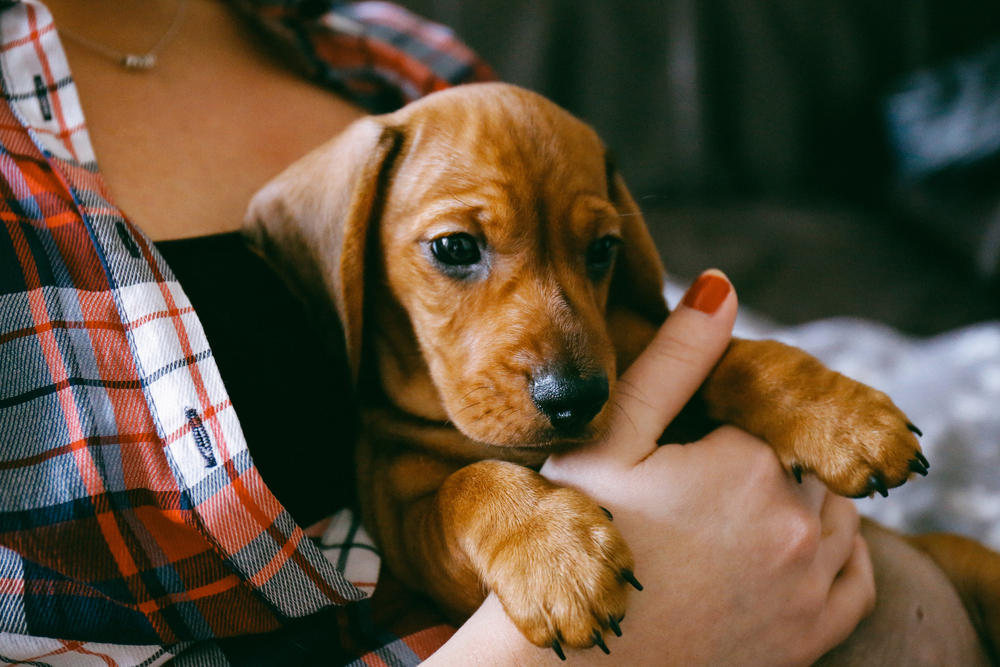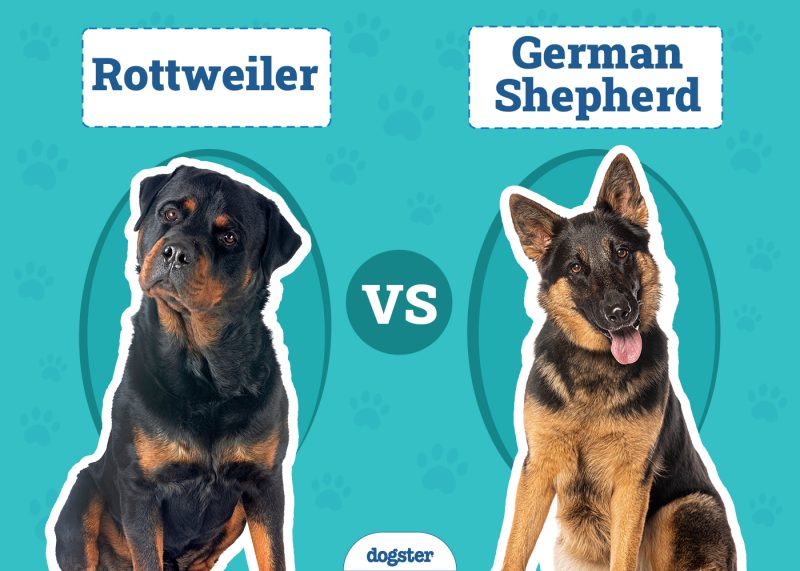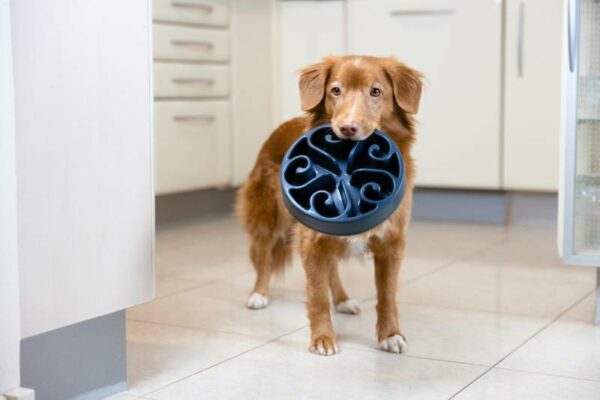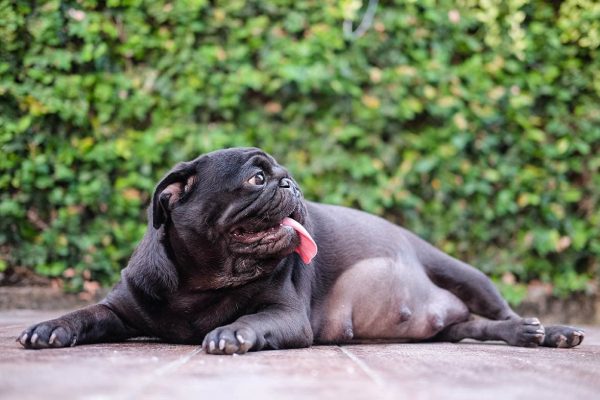Bringing home a puppy for the first time is exciting but also scary! These unequivocally adorable miniature immature dogs bring us much joy, but with the fun comes a bit of frustration. For one thing, they seem to go out of their way to cause trouble, and we sometimes wish they would hurry up and mature so we can start to love the whole dog ownership thing!
These feelings are perfectly normal, and nearly every puppy owner out there has likely felt this way at some point.
So, we’re here to help you through this trying time, and don’t worry—you’ll come out the other side of this period with a gorgeous and well-adjusted companion.

The 12 Tips for Not Getting Frustrated With Your Puppy
1. Try to Understand Your Puppy
It’s easy to forget that puppies don’t always understand us or know our expectations. They are in an unfamiliar place that sounds, smells, and looks different from where they came from, and they are likely confused most of the time. They are still learning about the world and don’t have much control over their behavior. If you remind yourself of this, it should help you deal with your frustration.
2. Become Familiar With Your Puppy’s Breed
All dog breeds have specific temperaments and behavioral traits, including mixed breeds. Make yourself familiar with your puppy’s breed, as this will allow you to better understand them. It’ll also make it easier to work with their natural disposition and behaviors and not against them.
3. Take a Break and Use the Crate
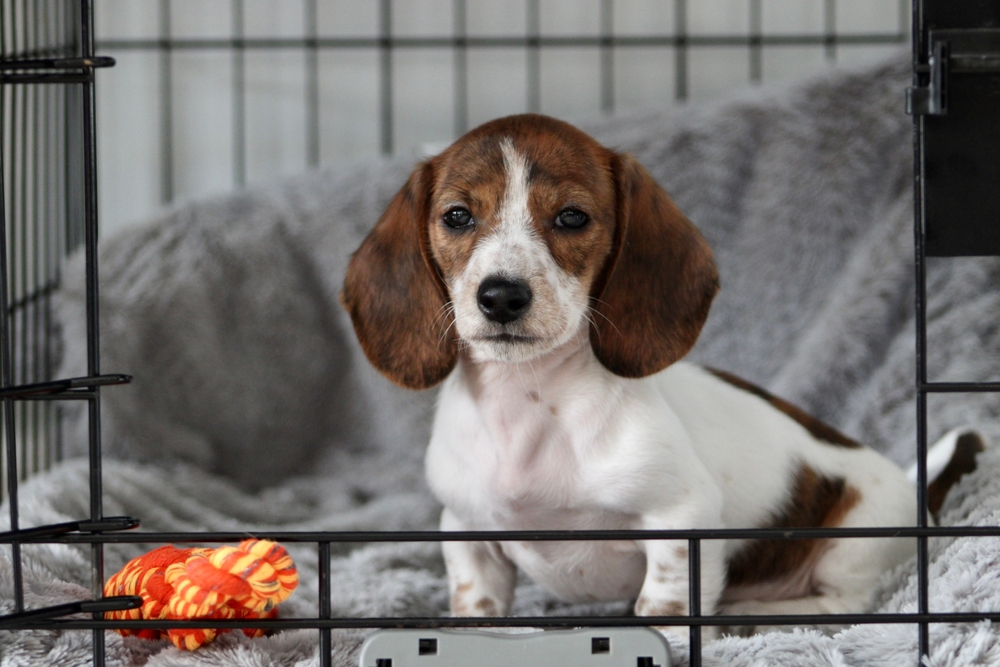
If you feel yourself losing patience and getting seriously frustrated, close your eyes and take a few deep breaths. Try to center yourself. If that isn’t enough, put your puppy in a crate or a safe, gated area, and step away for a bit. Even go for a quick walk around the block if it helps. Do whatever it takes to calm yourself down, including listening to music, taking a bath, or reading a book.
4. Puppy-Proof Your Home
You should ensure that your home is safe for your puppy, as this will also make it more difficult for them to get into trouble and try your patience.
- Lock trash cans
- Cover outlets and electrical wires
- Secure furniture from being knocked over
- Put plants out of reach
- Tie up window coverings
- Keep toilet seats closed at all times
- Store medications safely
- Store cleaning supplies in cabinets
- Move any sharp and small objects out of reach
- Block off litter boxes and cat food bowls
- Keep doors and windows closed
- Use dog gates to block off rooms
5. Create a Schedule and Routine
Creating a schedule for your puppy can help establish good behavior. They will benefit from a routine, as will you and your family. You’ll want a schedule that includes mealtimes (three meals a day for a puppy), bathroom breaks, playtime, naps, and bedtime. You should also emphasize playtime and walks. This gives your puppy much-needed exercise and will wear them out, giving you a bit of a break.
6. Encourage Nap Time

Nap time is break time! You’ll want to create a schedule for their naps rather than waiting for them to get sleepy. Think of it like when putting a toddler down for a nap at a set time. When a puppy starts acting up and is chewing and barking more than usual, they might be overtired and ready for a nap.
Puppies need about 16 to 18 hours of sleep a day, which is why creating a schedule will come in handy, to ensure that they get enough sleep. Place your dog in the crate with a toy to help occupy them. They’ll start restless, but they’ll become familiar with the schedule and learn to nap at these times.
7. Find a Puppy sitter
If you need a longer break than your puppy’s naptime, ask a friend or relative to look after your puppy for a few hours or maybe even an entire day! This gives you a physical and mental break since you’ll technically be “off duty.” This also helps your puppy with their socialization.
8. Get the Right Toys
You should ensure that you have the right toys that will give your puppy mental stimulation. Puppies need chewing and teething toys! You can also invest in tugging and plush toys. If your dog is keeping themselves busy with their toys, they are less likely to get into trouble.
9. Reward Your Puppy When They Are Calm
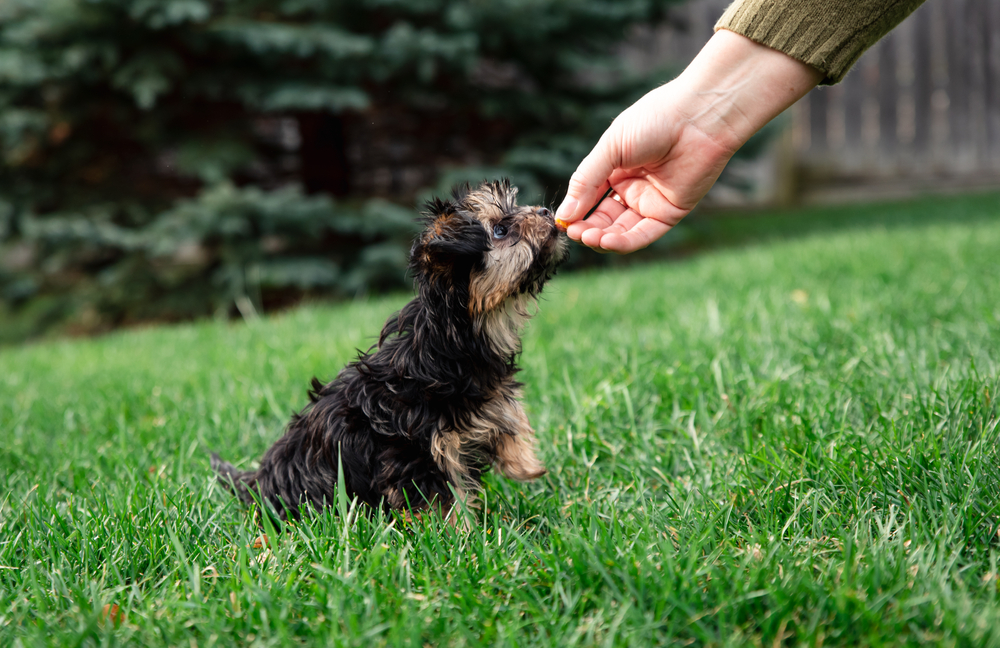
When your puppy is calm, give them a treat. They will eventually learn that good things happen when they are quiet and calm, which can contribute to raising a well-adjusted dog. While your puppy is quietly chewing on a toy or simply lounging, place a treat next to them, and then walk away. If your puppy jumps up and gets hyper, don’t react to them. Repeating this every time your puppy is relaxing will give them a positive association with being calm and quiet.
10. Take Obedience Classes
Having a trained puppy will go a long way toward reducing your frustrations. Obedience classes have multiple advantages: They help with your puppy’s socialization, you can commiserate with other puppy owners, and the training will help reduce undesirable behaviors.
11. Keep Your Puppy Leashed to You
This might not work for everyone, but keeping your puppy leashed to you when they aren’t in the crate can help. Some dog parents find that it makes housetraining easier because the puppy roaming around the house on their own makes it more likely for accidents to happen. Also, having your puppy near you at all times can lead to a stronger bond between you and help keep them out of trouble at the same time.
12. Be Patient and Consistent
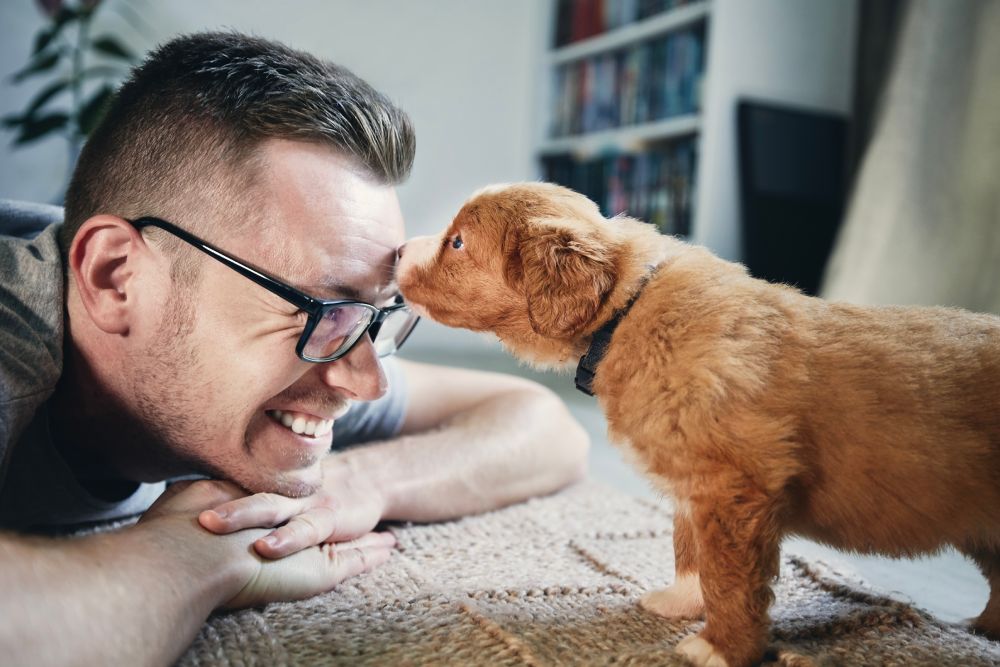
Taking care of a puppy requires a great deal of patience, particularly while training them! Some puppies might take multiple training sessions to learn something, while others might pick it up quickly. Regardless, training needs both patience and consistency. Try repeating to yourself things like, “This too shall pass,” or, “They won’t be a puppy forever!” Combine this with deep breathing, and you might get a handle on your frustration.

Remember, It’s Not Bad Behavior
You’ll need to get into the mindset that it isn’t technically bad behavior when a puppy does something seemingly naughty. You can’t expect them to know right from wrong because they need to be taught and learn how everything works.
The most important thing is how you handle your frustration. Getting angry is normal and understandable, but you must try not to take your anger out on your puppy. Don’t yell or handle them roughly; this will only teach them to be afraid of you, and they will be less likely to trust you.
Always use positive reinforcement and remember that puppies are little sponges and will learn from everything that they experience. If you would ever feel like at the end of the rope, don’t despair! Calling a vet for an advice is the easiest thing you can do.
If you need to speak with a vet but can't get to one, head over to PangoVet. It's our online service where you can talk to a vet online and get the advice you need for your pet — all at an affordable price!


Conclusion
Always try to approach every annoying thing that your puppy does with the thought that they aren’t intentionally trying to be annoying. Puppies are full of energy, and for the most part, they need time to learn your rules.
As frustrating as they can be, it’s practically guaranteed that you’ll miss your cute little puppy once they are all grown up. So, enjoy the puppy phase as much as you can!
We hope that following these tips helps make things more manageable for you and your adorable fluffball. Before you know it, they’ll be a well-mannered adult that you’ll enjoy spending all your time with.
Featured Image Credit: Alena Veasey, Shutterstock
